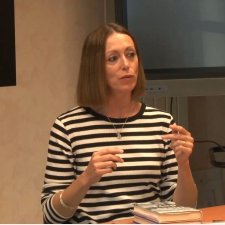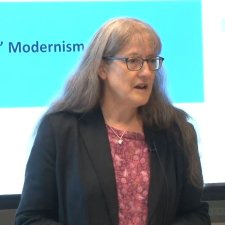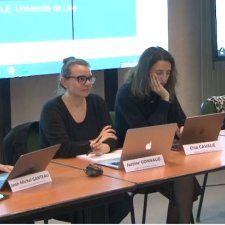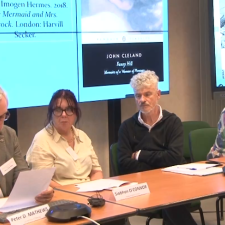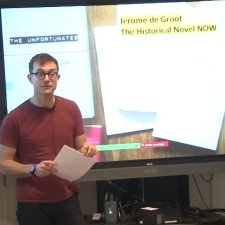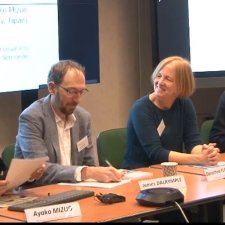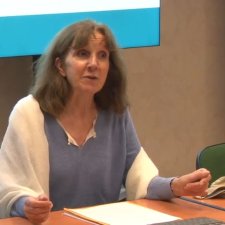Notice
Session 3 - Art and materialities (chair : Vanessa Guignery)
- document 1 document 2 document 3
- niveau 1 niveau 2 niveau 3
Descriptif
COLLOQUE INTERNATIONAL ANNUEL
SOCIETE D ETUDE ANGLAISES CONTEMPORAINES
The (Neo-)Historical in British Literature and Visual Arts (20th-21st c.)
Chi-min Chang (University of Taipei, Taiwan), “The Space of Light and Shadow in Kazuo Ishiguro’s An Artist of the Floating World”
In An Artist of the Floating World, written by Kazuo Ishiguro, reminiscences of the past demonstrate the entanglements between artistic endeavours and socio-political oscillations incurred by World War II. Aligning with what Jacques Rancière contends in Mute Speech, Chi-min Chang argues that the interplay of light and shadow in the narrative bespeaks a kind of historical truth by not only lifting the barrier that separates facts and fiction but unveiling a different texture of historical narrative. This novel is not merely a novel about art in history but about how art renders a different vision of history.
Sylvie Maurel (University of Toulouse-Jean Jaurès, France), “The pressure of history in The Children's Book by A.S. Byatt (2009)”
In this talk, Sylvie Maurel argues that A.S. Byatt's concern in The Children's Book is perhaps less with the relationship between story and history than with the pressure of history which, as the narrative moves inexorably towards the conflagration of the first world war, exercises a form of predation on individual and collective fates, while taking its toll on the momentum of storytelling through relentless reference to dates and historical facts.
Jean-Michel Ganteau (Université Paul-Valéry Montpellier 3, France), “Historical Fiction, Material Realism and the Poetics of the Inventory”
Jean-Michel Ganteau considers the way in which the traces of the past are consigned in a poetic and a logic of the inventory in a selection of contemporary British novels: Melissa Harrison’s At Hawthorn Time, Jon McGregor’s So Many Ways to Begin, Sarah Hall’s Haweswater, among others rely on a poetics of the ordinary that is anti-historicist and that is faithful to Foucault’s conception of genealogy as opposed to history. By taking on board basic elements of material realism, such novels try to come as close as possible to historical truth, introducing material and bodily experience (the narrator’s, the readers’) into the heart of the historical narrative
Dans la même collection
-
Lucy Caldwell, winner of the 2023 Walter Scott Prize for Historical Fiction with These Days
CaldwellLucyLucy Caldwell, winner of the 2023 Walter Scott Prize for Historical Fiction with These Days
-
Session_5 - Neo-Victorian Biofictional narratives and Neo-historical poetry (Chair : Charlotte Wado…
Session_5 - Neo-Victorian Biofictional narratives and Neo-historical poetry (Chair : Charlotte Wadoux)
-
Diana Wallace, University of South Wales, UK "Ought it not all be re-written instantly ? : modernis…
Diana Wallace, University of South Wales, UK "Ought it not all be re-written instantly ? : modernism and the re-invention of historical fiction"
-
Session 4 - Neo-Mythical fiction (chair : Jean-Michel Ganteau)
Session 4 - Neo-Mythical fiction (chair : Jean-Michel Ganteau)
-
Session 2 - Figures of marginality (chair: Isabelle Roblin)
Session 2 - Figures of marginality (chair: Isabelle Roblin)
-
“The historical novel NOW”, Jerome de Groot, University of Manchester, UK
“The historical novel NOW”, Jerome de Groot, University of Manchester, UK
-
Session 1 - Variations on biofiction (Chair : Georges Letissier)
Session 1 - Variations on biofiction (Chair : Georges Letissier)
-


